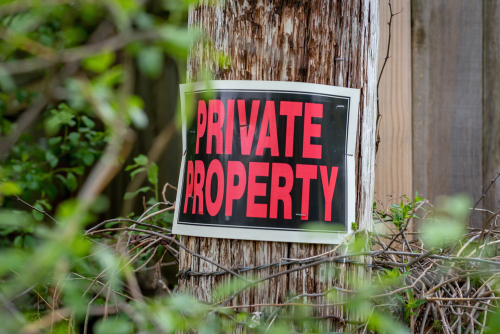A recent Texas case has raised new questions and concerns about the use of deadly force when it comes to protecting personal property. A video of an incident in Abilene shows a dispute between neighbors who got into an argument over where to dump a mattress. Tragically, one man shot and killed another during the dispute.
You may have heard laws about protecting your property referred to as “stand your ground” laws. These laws are also called the castle doctrine, and they exist in some form in 27 states. The idea behind these types of laws is that every property owner is the king or queen of their castle. Because these cases tend to receive a lot of media coverage, there are often misconceptions about how they work and what kinds of rights property owners really have.
While Texas has such a law, it’s important to know what the law says – and what it doesn’t. If you’ve been charged with any crime related to the castle doctrine, it’s in your best interest to talk to an experienced Texas criminal defense lawyer who understands these cases and handles them regularly.
What Is Your Castle?
Under Texas law, what constitutes a person’s habitation is actually a quite narrow definition. The habitation must be a structure or vehicle designed for “overnight accommodation.” This distinction includes a house, trailer or recreational vehicle with a bedroom.
However, the definition doesn’t encompass detached buildings like barns, outbuildings, storage sheds, or regular vehicles. It can include a porch or garage if it’s connected to the main house where the person’s sleeping area is located.
Can You Use Deadly Force in Any Confrontation?
You can’t use deadly force in just any type of confrontation, even if the person enters your property without your permission. Some people believe the castle doctrine means you have the automatic right to use deadly force any time someone threatens you on your property or even merely trespasses on your property. This assumption is incorrect, and it can lead to tragic results for both parties.
In general, the castle doctrine gives people the right to use an appropriate degree of force in response to the immediate threat they perceive from the other person. For example, the law is unlikely to protect someone who pulls a gun on an intruder who simply wanders into a house without making any threat at all.
Additionally, the use of deadly force must be justified in that the aggressor must have been threatening some type of crime, like assault, robbery, or murder. In other words, just because someone walks onto your property without your permission doesn’t mean you have a legal right to threaten their life.
Also, the person who enforces the castle doctrine can’t provoke the other individual or be involved in a criminal act at the time the confrontation occurs. It’s easy to see how these cases can get quite complicated, which is why it’s critical for property owners to use caution when dealing with people on their property.
What If Someone Yells at You or Threatens You?
If you’re fortunate, your neighbors are nice people who make living in your neighborhood a pleasant experience. Unfortunately, not all neighbors are like this. You can’t do much to control who moves in next to you or across the street. Over the years, there have been a number of serious cases in which neighbors got into arguments that ended in assaults or worse.
The castle doctrine allows a property owner to defend themselves as long as they have a right to be there and they haven’t provoked the other person. However, the castle doctrine is typically raised as an affirmative defense in a murder trial, which means property owners who shoot and either injure or kill someone must show they used the doctrine in the proper way. The burden of proof is on the prosecution to show beyond a reasonable doubt that the property owner didn’t act in appropriate self-defense.
If a neighbor gets in your face and yells at you or threatens you verbally, you most likely don’t have the right to use deadly force against that person. The level of force must be in proportion to the threat the person poses. For example, you can likely use deadly force if the other person is on your property and threatening to kill you while they’re holding a weapon. This threat level makes the situation much different, and in these cases, a property owner is likely justified in using deadly force due to the seriousness of the threat.
The castle doctrine gives property owners important rights, but these rights aren’t absolute. If you’ve been charged with using force under the castle doctrine, it’s important to talk to a knowledgeable Texas criminal defense lawyer.
Media Contact:
Dallas Criminal Defense Lawyer John Helms
(T): 214-666-8010
Sources:
- https://www.cnn.com/2018/09/22/us/texas-neighbor-shooting-mattress-dispute/index.html
- https://guides.sll.texas.gov/gun-laws/stand-your-ground


